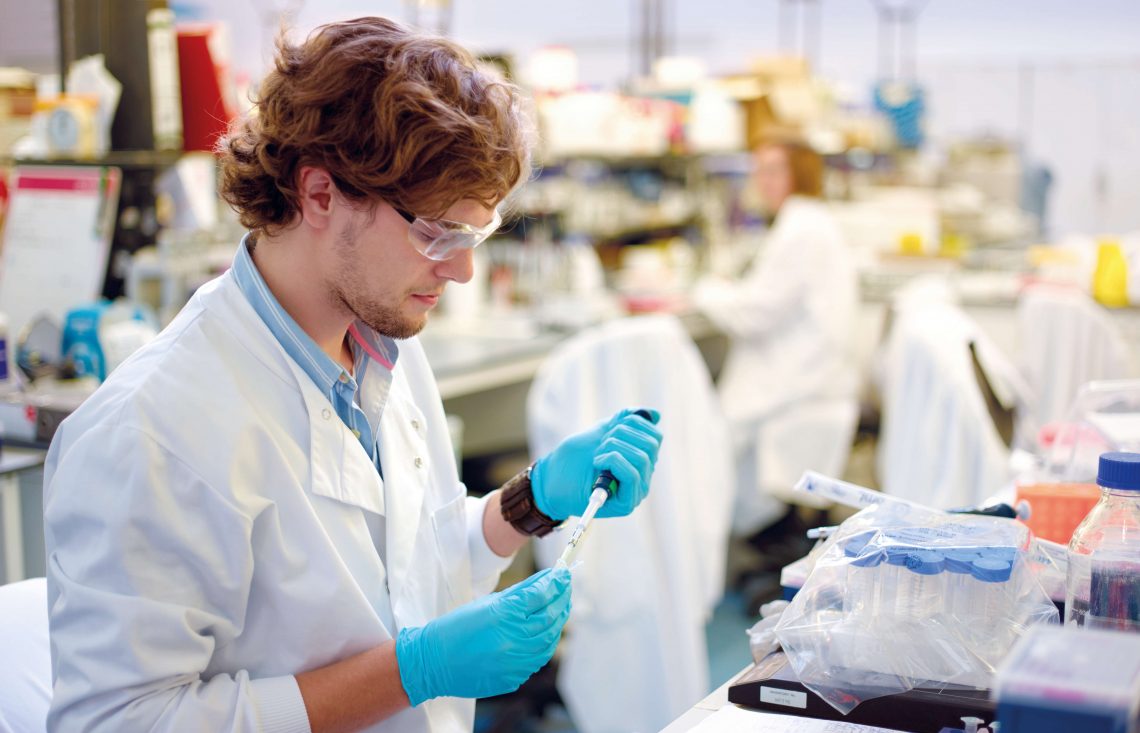
Human Somatic Mutation Database (HSMD)
Gain deep insight into clinically observed somatic variants
Analyze with Precision. Interpret with Confidence.
THE INDUSTRY'S BEST KEPT SECRET
Over 2 decades of expert somatic variant curation
Across oncology applications, from research to molecular testing and pharmaceutical development, the ability to identify potentially actionable genetic alterations and exploit the molecular vulnerabilities of cancer is becoming increasingly difficult. Due to the sporadic nature of somatic cancers, the number of detected variants is exponentially growing, challenging labs to confidently identify meaningful mutations that could influence or improve decisions at the point-of-care.
Human Somatic Mutation Database (HSMD)
The Human Somatic Mutation Database (HSMD) is a new somatic database developed by QIAGEN that contains extensive genomic content relevant to solid tumors and hematological malignancies.
In the first version of HSMD, the resource focuses on providing deep insight into small variants, such as SNVs, indels, and frameshifts, that have been clinically observed or curated from scientific literature to help users better understand and define precise function and actionability.
Available as a web-based application, this expert-curated resource contains content from over 419,000 real-world clinical oncology cases combined with content from the QIAGEN Knowledge Base (QKB), providing gene-level, alteration-level, and disease-level information.
On-demand Webinar
Join Dr. Ana Krivokuca as she shares how a national cancer research center uses HSMD to identify causal somatic mutations.

The HSMD difference
HSMD leverages variant content from two sources: expert-curated content from the QIAGEN Knowledge Base (QKB) and data from real-world oncology cases sourced from our professional clinical interpretation services.
Users can easily search and explore mutational characteristics across genes, synthesize key findings from drug labels, clinical trials, and professional guidelines, and receive detailed annotations for each observed variant.
When a variant has been “clinically observed,” it means our professional clinical interpretation service has encountered this alteration in a real-world clinical case.
For these variants, our team has assessed the clinical and biological relevance and calculated the gene and variant prevalence across observed tumor types.
Conversely, content from the QKB is proactively curated from scientific literature; therefore, not all variants have yet been directly clinically observed by our professional clinical interpretation services.
Access real-world data and two decades of expert curation from QIAGEN's growing oncology dataset
Through QIAGEN’s professional clinical interpretation services, HSMD has data from over 419,000 real-world clinically oncology cases with over 345,500 expertly assessed somatic variants.
From these 70,000 new clinical oncology cases, QIAGEN’s professional clinical interpretation services adds at a minimum of 60,000 clinically observed variants each year.
HSMD leverages expert-curated content from the QIAGEN Knowledge Base, which contains the latest evidence from peer-reviewed papers, clinical and functional studies, on- and off-label drugs, and professional guidelines, such as NCCN, AMP/ASCO/CAP and the World Health Organization (WHO), and commonly used databases, including gnomAD and ClinVar.
With this content, you gain insights into:
- Disease associations
- Functional impacts
- Biological relevance
- Diagnostic, prognostic, and therapeutic relevance
- Clinical outcomes
HSMD covers over 1,400 cancer-related genes in over 10,000 cancer subtypes, including neoplasms and hereditary cancer types.
Applications

Pharmaceutical Development
Drive successful precision medicine programs with real-world data that helps you find and validate the right targets faster, identify appropriate patient cohorts, and enhance your companion diagnostic (CDx) design.

Clinical NGS Testing
Reduce test turnaround time, improve variant interpretation, and standardize decision-making with access to clinically observed somatic variants, expert-written variant interpretation summaries, and AMP/ASCO/CAP variant actionability classifications.

Academic Research
Accelerate and enable your research by leveraging genomic- and clinically-annotated oncology data to help you conduct in-depth searches on variant functionality and confidently determine a variant’s biological significance.
Features
How HSMD enables deeper insights
HSMD enables users to search by genes, alterations, diseases, drugs and clinical trials.
The above images show an example of how one could search by gene and the subsequent level of detail provided by HSMD.
When you search by gene in HSMD, you access the total number of genes listed in the database. You can then further narrow your search by viewing data from the QIAGEN Knowledge Base or focusing exclusively on clinically observed variants.
Example: Search for ALK p.F1174L
When you search for ALK p.F1174L in HSMD, you receive a description of the alteration with links to relevant literature, external links to the alteration in ClinVar, dbSNP, and OncoKB, and a summary of alteration details, including chromosome position, alteration type, functional impact, and population frequency.
Once you narrow your focus to searching for only clinically observed variants, you receive a table and distribution graph that shows the number of observed clincial cases for a particular gene across all cancer types.
Continuing the example using ALK p.F1174L, you can clearly see the alteration’s distribution by disease through a table and graph. As you scroll down, you receive information on the gene’s frequency in different populations, as well as its biological impact.
HSMD enables you to view relevant drugs and clinical trials for a specific alteration. In the above example, you receive a list of drugs approved for use with ALK p.F1174L, as well as recruiting clinical trials for that alteration.
In addition, HSMD provides an extensive bibliography for each alteration, with clickable links to each article.
HSMD also provides an interactive table that offers detailed information on gene type, association with disease, actionability, and relevant drugs and clinical trials.
Column: #Types: Genes are listed as oncogene, tumor suppressor, or not established.
Column: #Diseases: HSMD displays the number of how many diseases have been observed or associated with a particular gene.
Column: #Actionability: HSMD displays the AMP/ASCO/CAP tier calculation for actionability for each gene. This calculation is the highest tier across all cancers.
Column: #Drugs: These are drugs that have been approved (FDA, EMA, PMDA), are being investigated, or currently in clinical trials.
Column: #Clinical Trials: This is the number of active or recruiting clinical trials associated with a particular gene.
When you hover over the #Impact column, you receive a dropdown menu of alteration type (Nonsense, Frameshift, Inframe Indel, Splice Site, Missense, Synonymous, or Unknown).
When you hover over the #Function column, you receive a dropdown menu of alteration function (Known Activating, Predicted Activating, Altered, Known Inactivating, Known No Effect, Predicted No Effect, Acquired Resistance, microRNA Binding Site, Unknown, or Not Determined).
How does HSMD complement COSMIC?
COSMIC, the Catalogue of Somatic Mutations in Cancer, is the world’s largest expert-curated somatic mutation database. HSMD complements COSMIC with data from real-world oncology cases to better understand gene and variant prevalence. HSMD also provides deeper variant annotations. Therefore, COSMIC is used to identify biomarkers and annotate variants for genomic reports, whereas HSMD is used to validate biomarkers and better assess their biological and clinical relevance.

Request a free trial of HSMD
Try firsthand HSMD and explore the database’s features, content and applications with a free, no-obligation 5day- trial of the industry’s best kept secret.
